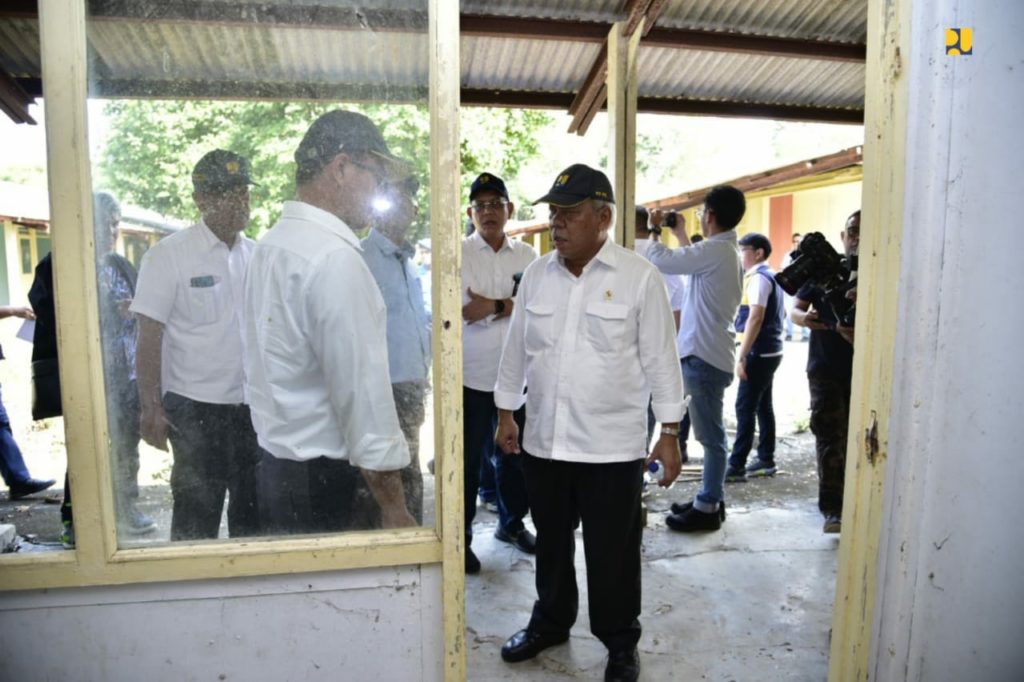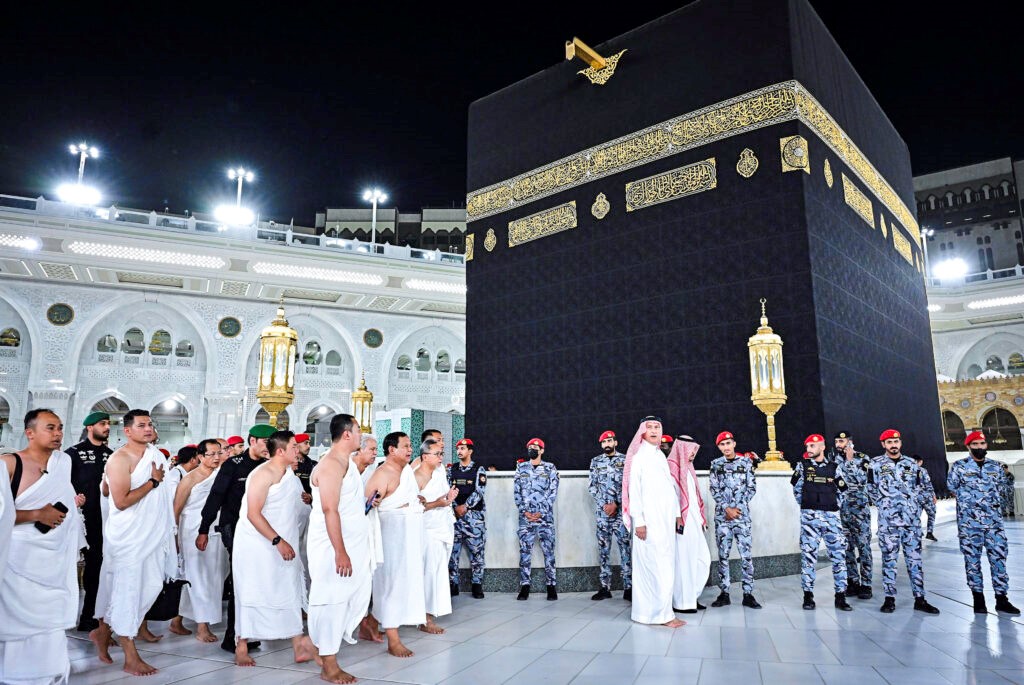Gov’t Aims to Complete Infectious Disease Control Facilities Development

Minister of Public Works and Public Housing inspects the readiness of infectious disease control facilities development in Batam. (Photo by: Ministry of Public Works and Public Housing Documentation)
The Indonesian Government through Ministry of Public Works and Public Housing developed infectious disease control facilities to treat Covid-19 patients, on Galang Island, Batam City, Riau Islands Province.
Minister of Public Works and Public Housing Basuki Hadimuljono stated that in accordance with President Joko “Jokowi” Widodo’s directive, the facilities are expected to be completed by the end of March 2020.
“The President’s directive is that in 2-3 weeks, (the facilities) must be ready to be utilized. It includes not only buildings for observation/holding/quarantine (including isolation) but also supporting facilities such as doctor/nurse’s houses, public kitchen, warehouse, laundry area, and others. Currently, we are in the process of land clearing and we will also connect the electricity supply from state-owned electricity company PLN,” Basuki stated.
In the initial phase, two 2-story buildings will be built, consisting of observation/holding/quarantine facilities (including isolation). The observation facilities will have a capacity of 230 beds, where one room can hold 8-10 patients. Meanwhile, the isolation facilities will consist of 30 ICU beds and 20 non-ICU beds using equipment in accordance with applicable standards.
In addition, the main facilities will also be surrounded by sports facilities, green open space and solid waste treatment facilities with special incinerators, as well as Wastewater Treatment Plants (WWTP).
“The former hospital in the area can still be utilized, I see that the structure is still good, the wall with the double cover of asbestos is still strong, all that’s left is the ceiling and the weathered wooden frame we will replace. The point is it can still be used for supporting facilities such as rooms for administration, doctors, medical personnel, kitchen, and laundry,” he said.
Basuki said that the construction budget for all health facilities and infrastructure was carried out through a joint operation scheme (KSO) between PT. Wijaya Karya (Persero) and PT. Waskita with the Construction Management Consultant PT. Virama Karya.
Furthermore, the Minister said that to provide raw water, the Government prepared four alternative water reservoirs namely the Monggak Rempang Reservoir with a discharge of 232 liters/second, located 16 km away, Camp Vietnam retention basin (0.11 liters/second) located 1.6 km away, Setotok retention basin (1.5 liters/sec) located 35 km away, and the Sei Gong Reservoir (400 liters /sec) located 4.1 km away. However, the Sei Gong Reservoir has brackish water.
“To support the observation and isolation facilities, we will build a water treatment plant (IPA) with a capacity of 5 liters/second sourced from the Monggak Rempang Reservoir,” he said.
The Monggak Rempang Reservoir has a capacity of 5.1 million m3 with a pool area of 154.6 hectares. Currently, the Ministry through the Center of Sumatra River Region IV of Directorate General of Water Resources is preparing a transmission pipeline along the 16.2 km and distribution pipes in the area along the 6.7 km. The total budget is estimated at around Rp17 billion.
To date, the process of land clearing has been started and mobilizes some heavy equipment, such as 7 bulldozers, 7 excavators, 4 dump trucks, 2 generators, 2 water tankers, and a mobile toilet.
The Ministry will also increase access in and out of the island by building helipads and preparing dock arrangements at the Port of Galang Island which is managed by the Technical Implementation Unit of the Transportation Department of Batam City Government.
For the record, the facilities utilize the location of a former Vietnamese refugee camp which functioned from 1979 to 1996. (BKP Kementerian PUPR/EN)
Translated by: Fairuzzamani Inayatillah
Reviewed by: Mia M. Bonaedy








